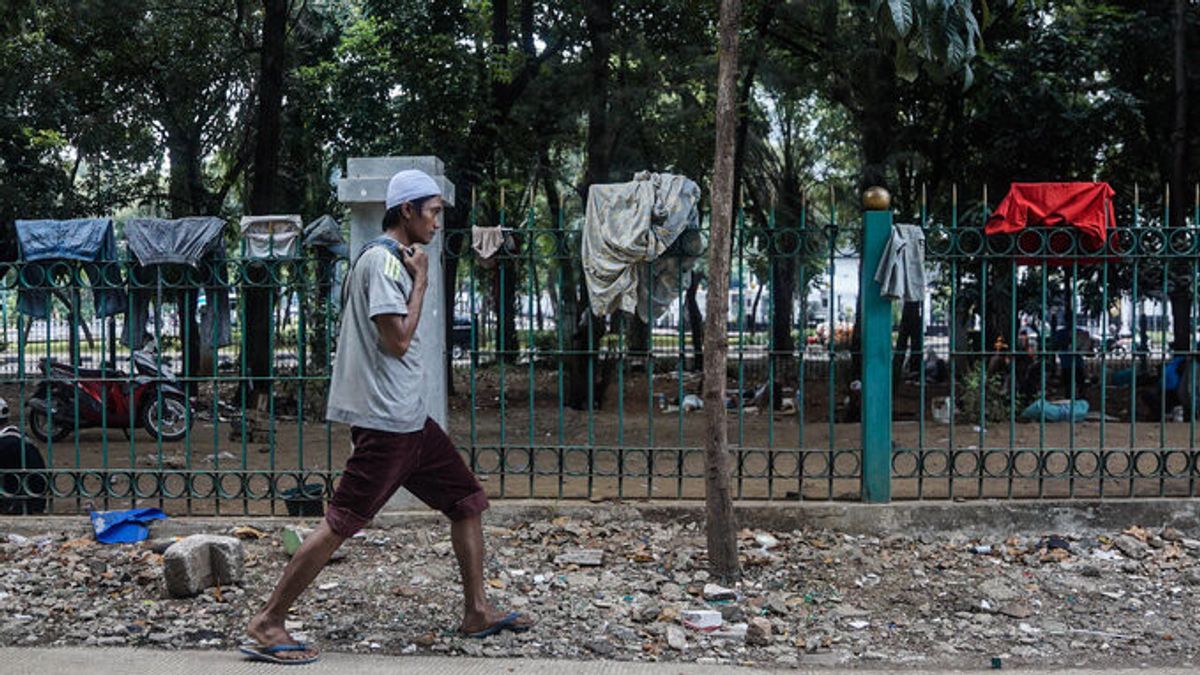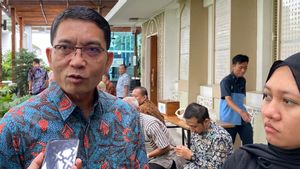JAKARTA - The government's plan to provide COVID-19 social assistance (bansos) to the community in the midst of the implementation of the Emergency Community Activity Restrictions (PPKM) has been under the spotlight. The reason is that although the assistance is given in cash, the risk of fraud is still high.
This risk was raised by Indonesia Corruption Watch (ICW) who considers the issue of the COVID-19 social assistance not only limited budget and government commitments but also data updating.
"Although the Ministry of Social Affairs no longer distributes basic food assistance, the potential for corruption in the COVID-19 social assistance case does not necessarily disappear," said ICW researcher Kurnia Ramadhana in a written statement quoted on Wednesday, July 7.
According to him, the provision of cash assistance and business assistance from the government is vulnerable to being channeled incorrectly. The reason is that there is still recipient data that is not up-to-date and duplicate data.
In addition, corruption can also occur in the form of illegal levies and cuts in aid before it is received by the recipient. This kind of practice, said Kurnia, continues to emerge in the community.
Not only that, ICW also mentioned that the potential for corruption in the procurement of goods and services is still haunting. Moreover, local governments generally distribute aid in the form of food items, masks, and medicines.
Kurnia said that her party agreed that the social assistance program needed to be improved, especially during the Emergency PPKM period like now. However, there are a number of mitigations that need to be done, including ensuring that the providers of goods and services must be clearly appointed without nepotism.
"Emergency procurement regulations need to be equipped with mechanisms that better ensure that providers appointed by PPK are not appointed based on nepotism but because of their track record in providing similar goods or registered in e-catalogs," he said.
In addition, the role of internal supervisors and community supervision needs to be further enhanced by disclosing information related to government programs. "Here is the procurement information and its realization," said Kurnia.
Meanwhile, to avoid illegal levies, he said the government could make a complaint mechanism. It's just that this mechanism must run more effectively and sustainably.
For information, cash social assistance will target 10 million recipients and non-cash food assistance will be provided to 18.8 million recipients. In addition, the government will also provide assistance through the Family Hope Program which is given to 10 million families in need.
The amount of cash assistance that will be provided by the government reaches Rp. 300,000 per month and is distributed to residents at the beginning of every month. Meanwhile, in May and June, Rp600 thousand will be given at once.
The aid is planned to be disbursed soon because the Emergency PPKM has been running since last Saturday, July 3. The restrictions on these activities are carried out to control the COVID-19 case in the country which has recently become increasingly crazy.
Regarding the distribution of cash assistance, the KPK has also warned the government so that the process is transparent and upholds accountability.
"KPK hopes that the government's policy to redistribute COVID-19 social assistance will continue to prioritize the principles of transparency and accountability in its implementation so that it can be targeted and avoid potential irregularities," Acting KPK Spokesperson for Prevention, Ipi Maryati, told reporters on Monday, July 5.
According to him, the cash assistance distribution mechanism currently chosen by the government does have a lower risk than in-kind social assistance. "However, that does not mean (gift, ed) without obstacles," he said.
Ipi then explained that there were KPK findings in the process of distributing social assistance, namely the accuracy of recipient data which included the quality of recipient data, data transparency, and data updating.
The KPK said that currently there have been a number of corrective steps that have been followed up by the Ministry of Social Affairs based on the recommendations. So, this improvement should make the data quality better in the future.
"Updating the data also involves the role of local governments and other relevant stakeholders so that intensive coordination with stakeholders needs to continue to be built," said Ipi.
That way, the social assistance that will be given to the community is expected to actually reach those in need.
"Hopefully, the social assistance can really be felt by the people who have the right and need, and are accountable from the aspect of management," he concluded.
The English, Chinese, Japanese, Arabic, and French versions are automatically generated by the AI. So there may still be inaccuracies in translating, please always see Indonesian as our main language. (system supported by DigitalSiber.id)













